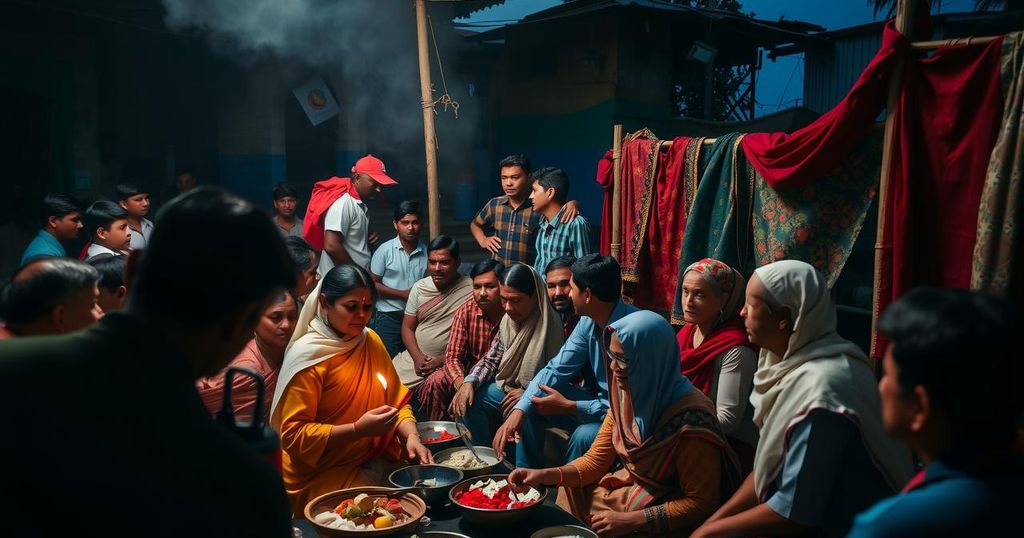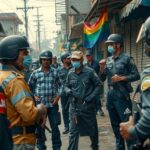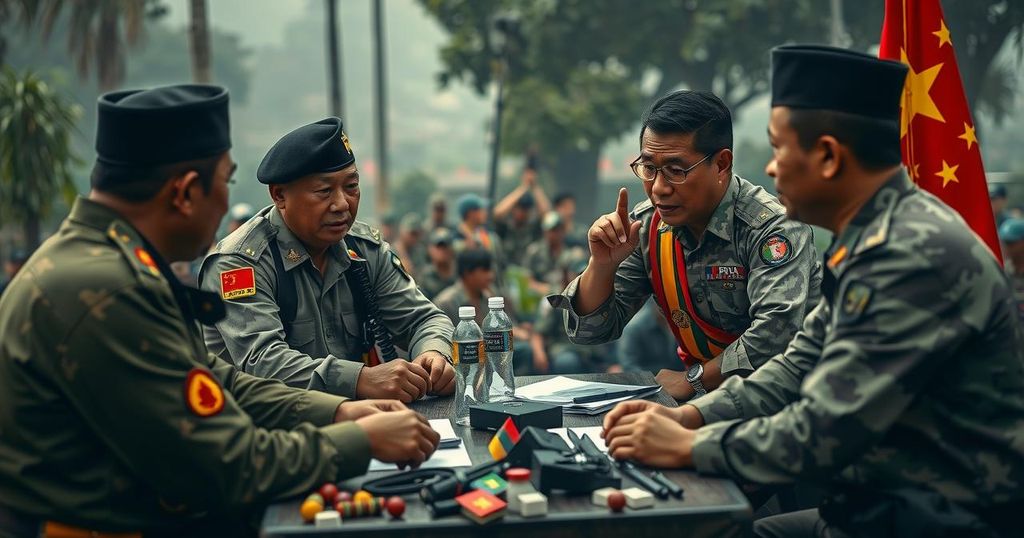Rohingya Mobilization and Armed Struggle in Myanmar’s Civil War
Rohingya refugees in Bangladesh are increasingly joining armed groups to fight in Myanmar, motivated by a desire to reclaim their homeland. As recruitment intensifies, this trend poses significant risks to regional stability and complicates humanitarian efforts. The Bangladesh government faces pressure regarding its role in supporting Rohingya militant actions against their former oppressors amid a backdrop of rising violence in Myanmar.
In July, a Rohingya man known as Rafiq left the world’s largest refugee camp in Bangladesh, risking his life to join the ongoing civil strife in Myanmar, where the Rohingya have been subjected to violence since 2016. Over the past year, thousands of Rohingya insurgents have emerged from refugee camps in Cox’s Bazar, reflecting a troubling rise in militant activity amid growing recruitment efforts. Rafiq, who sustained injuries during his fight in Myanmar, asserted, “We need to fight to take back our lands. There is no other way.”
The Rohingya, predominantly Muslim and the largest stateless group globally, fled to Bangladesh to escape perceived genocide by Myanmar’s military. Following the military coup in 2021, Myanmar’s internal conflicts have escalated, with various armed factions now engaging the Arakan Army, which has significant control in Rakhine State—their former homeland. Many Rohingya fighters find themselves inadvertently allied with former oppressors, as the junta recruits them under the guise of protection against the Arakan Army.
The Myanmar military has refuted claims of forced conscription, asserting that it merely offers military training and support to those who seek protection. Yet, concerns arise about the emergence of established Rohingya militant factions and the potential for violent repercussions affecting regional stability. Recent reports indicate a swift rise of Rohingya fighters, estimated at more than 2,000, recruited through various coercive methods, including targeting vulnerable children.
Bangladesh, increasingly frustrated with the entrenched refugee crisis, may be inadvertently fostering these conflicts, with some officials believing that armed resistance could force Myanmar to negotiate the repatriation of displaced Rohingya. Amidst this delicate situation, Bangladeshi military advisors suggest supporting Rohingya insurgents to leverage negotiations for a safe return of the refugees.
As tensions remain high in Rakhine State, the battle between the Rohingya insurgents and the Arakan Army continues, with neither side gaining decisive control. The alarming rise in Rohingya militancy complicates the already perilous humanitarian situation in Bangladesh and the prospects for peace in Myanmar.
The ongoing conflict involving the Rohingya in Myanmar and Bangladesh stems from years of ethnic violence and systemic discrimination against the Rohingya population. Since fleeing Myanmar in significant numbers since 2016 due to military persecution, many Rohingya have found themselves living in overcrowded refugee camps in Bangladesh, where they are denied basic rights including formal employment. The fragile coexistence has been threatened by the emergence of armed groups among the Rohingya and the precarious balance of power in the region following the Myanmar military coup in 2021.
In conclusion, the Rohingya population, facing the dire consequences of years of violence and statelessness, is now grappling with the escalation of armed conflict and recruitment into insurgent activities. As the situation continues to evolve, both Bangladesh and Myanmar must address the underlying issues and seek long-term solutions to prevent further loss of life and stabilize the region.
Original Source: www.thehindu.com








Post Comment